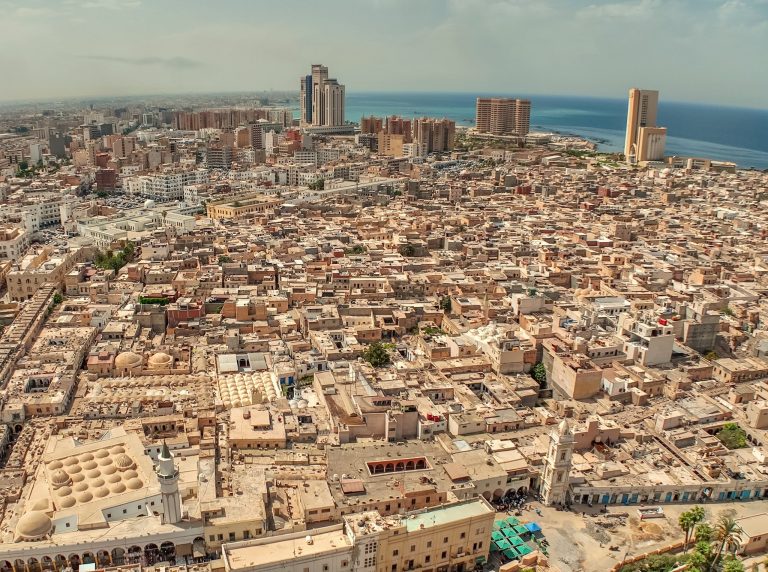As Libya emerges from years of conflict and instability, the nation stands at a pivotal moment in the reconstruction and modernization of its healthcare system. With extensive post-conflict reconstruction efforts underway, the healthcare sector is identified as a critical area for intervention, poised for substantial transformation by 2030. This transformation is influenced not only by Libya’s specific needs but also by global healthcare trends, signaling a comprehensive overhaul designed to meet the demands of its population.
Libya’s healthcare system is currently undergoing a significant transition, influenced by a combination of demographic shifts, technological advancements, and evolving policy frameworks. Each of these factors plays a pivotal role in shaping the future of healthcare in the region, aiming to address both legacy challenges and new opportunities that have emerged in the post-conflict era. The government, alongside international partners, is actively working to rebuild and enhance healthcare infrastructure, focusing on accessibility, quality, and sustainability.
This article outlines eight societal shifts that are expected to play a fundamental role in reshaping Libya’s healthcare landscape by the end of this decade. These shifts include the demographic changes driven by an aging population, the integration of cutting-edge technologies in medical and administrative processes, and significant shifts in healthcare policy and management. Together, these elements represent a multi-faceted approach to healthcare reform, designed to ensure that the healthcare system is robust, inclusive, and capable of meeting the needs of all Libyans.
1. Demographic Dynamics: Aging and its Implications
As Libya confronts the challenges of an aging population, similar to trends seen globally, the implications for healthcare are profound and multifaceted. The anticipated increase in the percentage of the population over 65 will significantly amplify the demand for healthcare services, particularly in chronic disease management and geriatric care. This demographic shift will put a strain on existing healthcare resources and necessitate a robust and adaptive response from healthcare providers. It is imperative that healthcare systems enhance their capacity to provide specialized care for the elderly, paralleling the global expansion of tailored healthcare services that cater specifically to age-related needs. This includes not only medical treatments but also supportive care and infrastructure that accommodate the unique health profiles of older adults.
2. Workforce Transformation and Healthcare Delivery
The healthcare workforce in Libya is experiencing transformative changes, driven by the need for more specialized care providers, including geriatric specialists, general practitioners, and nurses. This transformation is in response to the dual challenges of an aging population and global migration trends, which together risk exacerbating the existing shortages of healthcare professionals in the country. To address these shortages, Libya is exploring innovative approaches such as enhanced training programs that focus on geriatric and chronic disease care, incentives to retain medical professionals, and the integration of Libyan physicians trained abroad. These measures are crucial for building a healthcare workforce that is capable of meeting the evolving demands of the population.
3. Technological Integration in Healthcare Practices
Technological innovation is set to revolutionize healthcare delivery in Libya, mirroring global advancements. The adoption of telehealth services has been rapidly accelerated, offering a vital solution to improve access to healthcare, especially in remote and underserved regions. Furthermore, the implementation of electronic health records, artificial intelligence in diagnostics, and mobile health applications are poised to significantly enhance the efficiency and quality of healthcare services. These technologies not only streamline administrative processes but also improve the accuracy of diagnoses and the personalization of patient care, ultimately reducing costs and improving health outcomes.
4. Consumer-Centric Healthcare Models
In Libya, as in many parts of the world, consumer expectations in healthcare are evolving rapidly. Patients increasingly demand services that offer not only high quality but also convenience and transparency. This shift is largely facilitated by the growing use of digital platforms for health-related decision-making. In response, Libyan healthcare providers are urged to adopt more patient-centered models, leveraging technology to enhance service delivery and meet the changing expectations of their clientele. This includes simplifying access to medical records, providing online appointment systems, and enhancing communication between patients and healthcare providers.
5. Impact of Chronic Diseases on Healthcare Systems
The rising prevalence of chronic diseases such as diabetes, hypertension, and cardiovascular conditions is setting new challenges for Libya’s healthcare system. These conditions, often associated with lifestyle factors, necessitate a significant shift in healthcare priorities toward preventive care and lifestyle modification programs. The healthcare system must focus on strategies to manage these diseases effectively, incorporating regular screening, early intervention, and education on lifestyle changes as integral components of healthcare delivery.
6. Government Role and Healthcare Funding
The Libyan government plays a critical role in shaping the healthcare landscape. As the demands on the healthcare system grow, increased government funding and strategic healthcare planning become imperative. Policies aimed at sustainable healthcare financing and robust investments in healthcare infrastructure are essential to enhance the system’s capacity to manage increasing patient loads and the complex needs of a changing demographic.
7. Rising Importance of Environmental, Social, and Governance (ESG) Factors
Environmental, social, and governance (ESG) factors are increasingly influencing healthcare policies and practices worldwide, and Libya is no exception. There is a growing recognition of the need to integrate these considerations into healthcare planning to ensure that service delivery is both sustainable and equitable. This involves adopting practices that are environmentally responsible, socially beneficial, and governed by ethical principles, thereby aligning healthcare services with broader societal values.
8. Global Health Influences and Local Adaptations
Finally, Libya must navigate the intersection of global health trends and local cultural and societal specifics. The global push towards universal health coverage, increased attention to mental health, and the blend of traditional and modern medical practices offer valuable frameworks that can be adapted to the Libyan context. This adaptation process will be crucial for the country to develop a healthcare system that is not only internationally informed but also deeply attuned to the local needs and expectations of its population.

A New Horizon: Pioneering Libya’s Healthcare Renaissance
As we look towards 2030, the trajectory of Libya’s healthcare system is set to redefine both the national landscape and its position within the global health community. This evolution, deeply rooted in the recovery from conflict, promises not only to mend but to innovate, propelling the sector beyond mere recovery to a state of thriving modernity.
With the government and international bodies investing in the foundational elements of healthcare—ranging from the workforce to technological infrastructure—the stage is set for a series of strategic transformations. These changes are anticipated to yield a healthcare system that not only addresses the immediate health needs of the Libyan population but also establishes resilient structures capable of anticipating and mitigating future health crises.
The commitment to integrating environmental, social, and governance factors further positions Libya as a forward-thinking nation, ready to embrace sustainable healthcare practices that will serve its people for generations to come. Thus, as we approach the new decade, Libya stands on the brink of a healthcare renaissance that will fundamentally reshape its societal fabric, making a profound commitment to the health and well-being of every citizen.





